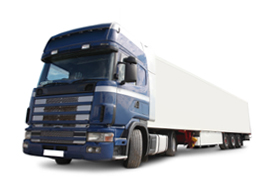States Don’t See Eye to Eye on Heavy Vehicle Roadworthiness
Western Australia, New South Wales and Victoria can’t agree on an approach to heavy vehicle roadworthiness management.
The states have all proposed different options to manage heavy vehicle roadworthiness and an inspection regime.
Formal responses to a National Transport Commission (NTC) study on improving inspection, roadworthiness and accreditation standards have been lodged by New South Wales, Victoria and Western Australia. None of the jurisdictions can agree on an approach. The NTC study was released in late January.
According to reports on Fullyloaded.com.au, Victoria and NSW want to keep their current systems in place and WA wants “incremental non-regulatory changes to improve processes”. They also want recognition that each state in different and therefore need different models.
The trucking industry on the other hand wants a more nationally uniform approach.
The NTC’ study has identified a number of possible reforms including targeted risk-based heavy vehicle inspections, standardised approaches to improve cross border consistency, more frequent inspections of some vehicles and the extension of chain of responsibility to vehicle standards.
The Victorian transport regulator, VicRoads want their current system to remain in place, despite a review finding it “unjustifiable”. VicRoads recently stated:
“Notwithstanding the comments regarding previous reviews of Victoria’s roadworthiness system, VicRoads does not have any current plans to make changes to its system. Accordingly, VicRoads supports the option of preserving its existing roadworthiness system,”
Source: http://www.fullyloaded.com.au
VicRoads has rejected a proposal to implement mandatory scheduled inspections saying there isn’t enough evidence to justify this. They say that despite the fact that the department conducts less frequent investigations, they do conduct them with more “rigour” than other states and territories.
Victoria isn’t the only state that has rejected mandatory scheduled inspections, WA is also opposed to it. The WA Department of Transport said that is would add regulatory and cost burdens on the government and the industry.
WA Department of Transport director general Reece Waldock explained:
“WA does not support mandatory annual inspections for all heavy vehicles due to the high costs to industry and government and the lack of evidence that links annual inspections to improved safety outcomes,”
Source: http://www.fullyloaded.com.au
One thing these states do agree upon is extension of chain of responsibility to vehicle standards under the Heavy Vehicle National Law (HVNL).
Victoria wants the issue looked at as part of the separate review of chain of responsibility currently underway.
WA is not a signatory to the HVNL but said it would consider alignment to it if a clear benefit can be demonstrated for the state.
NSW already has mandatory scheduled inspections and supports the existing regime continuing. NSW believes that applying this system in other jurisdictions will lead to alignment with NSW practices, making regulating heavy vehicles more streamlined.
The NSW Department of Transport issued a statement saying:
“Regardless of which of the options is chosen, TfNSW is of the view that the inclusion of a broad, positive duty to promote vehicle safety as a general duty under the HVNL is the best mechanism for managing COR under the new scheme,”
Source: http://www.fullyloaded.com.au
To find out more about The Chain of Responsibility click here.



